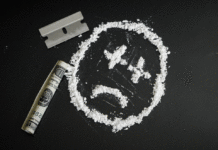Two members of the Judiciary Committee, Senator Chuck Grassley and Senator Dianne Feinstein, introduced a bill that would impose harsher sentences for individuals found in possession of synthetic drugs, including opioids.
The proposed legislation, the Stop the Importation and Trafficking of Synthetic Analogues (SITSA) Act of 2017, would regulate synthetic substances substantially similar to existing and already regulated illicit substances.
In some instances, those who synthesize or traffic illicit drugs will attempt to alter a small part of the molecular structure of a source substance in a laboratory. This provides them with a drug that produces effects substantially similar to the source drug but that are technically outside of the reach of existing laws due to the laboratory alterations. By modifying substances so they are outside of current regulation, drug makers and dealers are able to profit off their products by exploiting this legal loophole.
Under the proposed legislation, if a drug was found to be substantially similar to a pre-existing illicit drugs and is expected to have a similar or exaggerated effect on a user, it can be added — either temporarily or permanently — to a new category of substances, Schedule A. If an individual is found manufacturing or trafficking a Schedule A substance, they can face the criminal penalties that are currently applied to those manufacturing or trafficking a Schedule III substance.
This will afford authorities the ability to control new synthetic drugs faster than they currently can. Although the bill includes provisions aimed at ensuring that research can be undertaken on those drugs classified as Schedule A, it does not propose any mandatory minimum sentencing, nor does it criminalize possession of a Schedule A substance.
However, not everyone supports the new legislation, which would expand the existing regulation on controlled drugs. “We need a public health approach to drug use,” said Michael Collins, Deputy Director of the Drug Policy Alliance. “We know that the drug sentencing regime in the U.S. is flawed. It is racially discriminate, and does nothing to reduce drug use.”
The legislature would provide that those manufacturing or trafficking a Schedule A drug could face a maximum sentence of… (continue reading)
















